Why ERP is essential for global business
Running a business that spans multiple countries or continents is exciting but also challenging. As your business stretches further across the globe, it becomes more complex and requires more to manage your end-to-end operations.
Your business can only be as efficient and effective as the systems you use to manage it. That’s why an integrated, efficient ERP system is crucial. An international business needs a good ERP system to handle operations in many locations, taking into account different requirements and local needs.
An ERP system provides a real-time, comprehensive look at core business processes by way of a central database management system. Done right, ERP helps automate business functions and supports your business’ entire operational structure.
By increasing efficiency and helping your business run more smoothly, ERP reduces your costs and increases your productivity, whether you’re operating in Milwaukee or Mumbai – or both.
Here are four reasons every global business needs an ERP system.
Manage your data, processes, and costs
In a global business, managing data, processes, and costs is complicated. ERP makes it simpler.
Recommended reading: find a multi-currency, multi-language ERP to suit your needs with our completely up-to-date vendor directory.
The right global ERP system allows you to find highly specific local data for one location while also making it easy to access aggregate company data. It allows you to see what’s going on with one individual department while still showing you the bird’s eye view of what is happening across the whole company.
It does this while reducing your data and process costs. As many global businesses know, it is expensive to run multiple software applications with multiple license agreements, even before adding on the costs of different support agreements and different hardware in different countries. Establishing one ERP system for operations across all locations makes IT much more cost-efficient.
Similarly, ERP can ensure consistent processes are used, achieving consistent results across different locations. Running the same enterprise application in different locations makes an organization more efficient, by streamlining intra-company transactions and offering customers the same experience regardless of where they are.
With the right ERP system, you’ll be able to streamline operations such as supply chain management, inventory control, customer relationship management, and invoicing. This ability to manage operations across locations makes it easy for you to coordinate sales, manufacturing, and distribution locally and globally, ensuring everyone in your supply chain is connected.
Global ERP allows you to better manage your data and your processes, ultimately leading to a reduction in your costs. It enables you to standardize processes while maintaining the flexibility and decentralization your business requires.
Reduce language, cultural, and currency barriers
Running a global business means facing different challenges than running a business that solely operates in America. Different locations may operate in different languages, time zones, currencies, and even units of measure.
All of these can be handled effectively by an ERP system. Its ability to convert financial data will help you close your books more quickly and provide more timely financial results to management. Its ability to set up a local language requirement will let a U.S office access that financial data in English, while a production facility in China will be able to view it in Chinese.
However, even when implementing the right technology to consolidate your operation, it will still require buy-in from people to make it work. As an example, a global ERP system can’t make every division agree on a common set of standards like product nomenclature. Your enterprise will have to make decisions about how to treat data as it implements a business-wide ERP system. This will have a positive impact on your business, but some divisions may not be eager to take the necessary steps, such as by renumbering hundreds or thousands of parts to comply with a new nomenclature.
Yet this process, backed by an ERP system, is critically important. A common set of naming standards is even more important in a global business, where people work in different languages and do not always have the same ability to understand varying naming conventions. It is important to have standardized conventions, and an ERP system designed for global business can help you with this.
Better compliance and risk management
When working in multiple countries, it can be difficult to keep track of compliance requirements. Different countries have different financial, legal, and environmental regulations. Local legislation can have an important impact on your business.
It is difficult to not only monitor and track these regulations as they change, but to also integrate these changes into your operations and reporting. With a global ERP system, regional differences can be addressed and updates can be rapidly deployed to respond to regulatory changes. Your business will be able to streamline and comply with global and local compliance requirements, and it will be easier to mitigate risks and reduce the cost of compliance.
Contribute to agility and growth
Being a successful global business requires being agile and finding opportunities for growth. At its best, an ERP system allows you to seamlessly grow your business, whether you are expanding a product line or expanding into a new market.
Global business gets more complicated every day. It’s not easy to grow while managing all the complex needs of your business, from managing its processes and costs, to reducing barriers within the business, to better complying with global and local requirements.
All of this is much easier with a reliable ERP system. For a global corporation, ERP is an essential tool in managing inventory, improving efficiency and reducing expenses, completing financial reporting, and more.
If your global business has been operating without an ERP system, it has been operating less effectively than it could be. ERP is essential for every global business, including yours.
Contributed by Aaron Continelli, president of Cre8tive Technology and Design
Free white paper
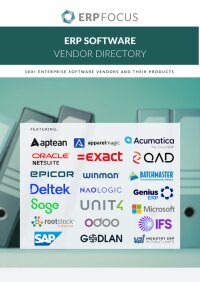
ERP Software Vendor Directory
Put the most comprehensive ERP vendor directory on your desk today
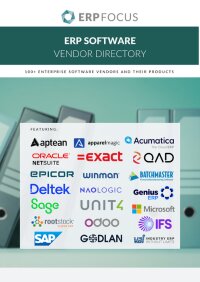
Featured white papers
-
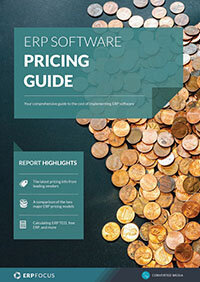
ERP Software Pricing Guide
Get the latest pricing information on over 80 popular ERP systems, and learn how to budget for your ERP project in our free guide
Download -
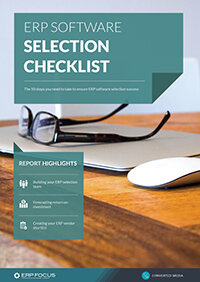
60-Step ERP Selection Checklist
Get the comprehensive checklist for your ERP selection project
Download -

ERP Demo Guide & Scorecard
Master your ERP demo with 5 easy steps using our free guide (includes demo scorecard)
Download
Related articles
-

The best ERP systems for process manufacturing
Consider these ERP systems when selecting your next process manufacturing ERP
-
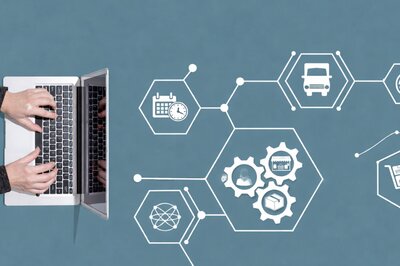
How the right ERP can help you launch a successful omnichannel business
Petersen Zhu, CEO of DigitBridge and Vibes Base, shares how to create a scalable omnichannel stra...
-

5 ERP pricing definitions you need to understand
Have you mastered the ERP pricing lexicon yet? Getting to grips with these five definitions is a ...

